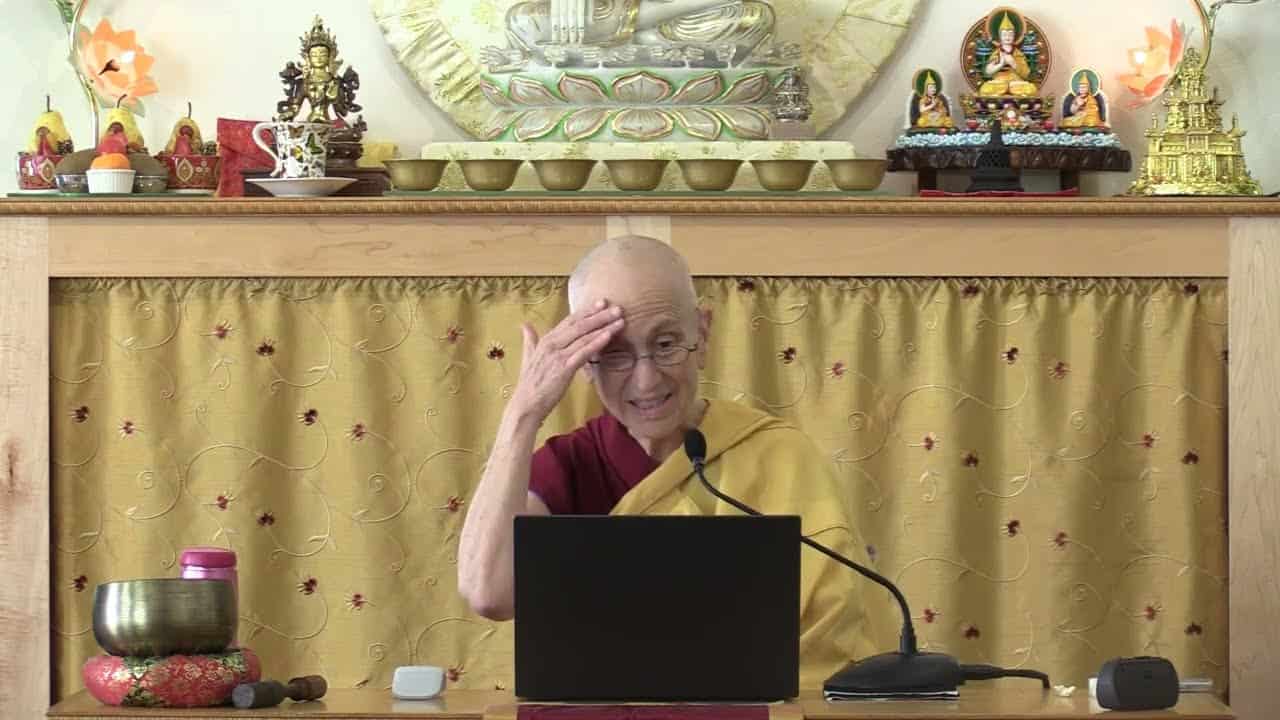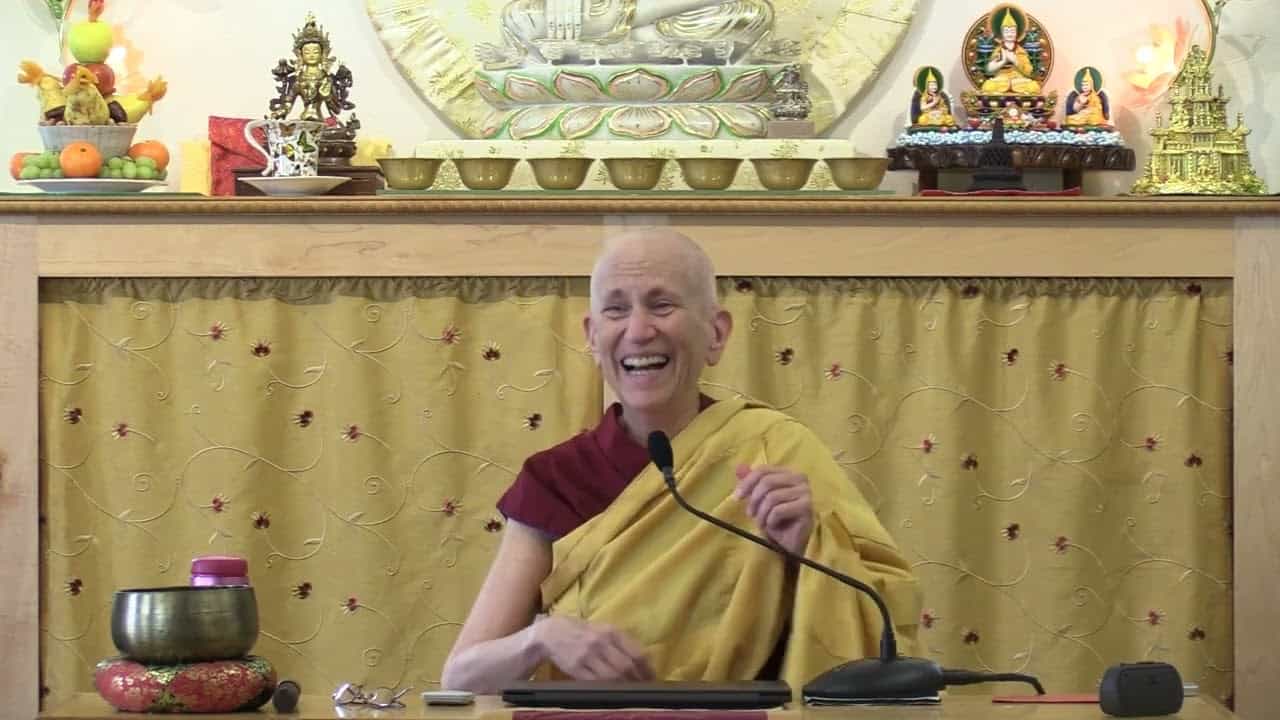Intoxicants and celibacy
29 Following in the Buddha's Footsteps
Part of an ongoing series of teachings based on the book Following in the Buddha's Footsteps, the fourth volume in The Library of Wisdom and Compassion series by His Holiness the Dalai Lama and Venerable Thubten Chodron.
- Importance of Pratimoksha precepts
- Naturally negative actions and not naturally negative actions but cause problems
- Bodhisattva and Tantric vows not to abandon Pratimosksha ethical codes
- Reflecting on precious human life and what brings suffering and happiness
- Reasons for avoiding taking intoxicants
- Suffering comes from the lack of restraint of the mind intoxicated
- Ruins people’s lives, careers, families and friendships
- Examples of unwise and unkind sexual behaviour
- Practitioners with different aims and different levels of practice
- Pleasure of samsara without harming others and free of attachment to objects of five senses
- Two types of desires, one based on reasoning another based on wrong conceptions
29 Intoxicants and Celibacy (download)
Contemplation points
- We so easily justify our misdeeds to ourselves and others. Make some examples of ways you’ve justified unskillful actions you have done in the past. What were the results of this?
- Reflect on the following from the text:
- Ask yourself: How many years have passed away since I was born? How many years do I have left? How many months? How many days? See that your precious human life is slipping away and that while you still have this life, it’s important not to take it for granted but to use it wisely.
- Recall that all the suffering people experience in samsara comes from destructive actions and recollect the disadvantages of these unwholesome deeds.
- Since happiness arises from virtuous karma, make a sincere determination to abandon negativity and create virtue.
- Since this begins with practicing ethical conduct, see the importance of taking and living in precepts.
- Consider how what we do affects ourselves and others:
- Why is there a precept to avoid intoxicants? How might being under the influence of an intoxicant affect you and your decisions? How might your actions affect others when you are under the influence? Make some examples from your own life and/or from the world.
- Why is there a precept to avoid unwise and unkind sexual behavior? What are some examples of this in modern times? How might keeping this precept affect your own life and how you relate to others?
- There are multiple levels to the precept around sexual behavior: those for lay practitioners and those for monastics. What are the differences between these and the reasons behind them?
- Reflect on the following from the text:
- What ethical values do you live by?
- Did you accept them because you learned them from others when you were young? Because you examined them and saw the reasons behind them? Both?
- Why did the Buddha caution against taking intoxicants? Does your experience and what you have observed about others’ experience with intoxicants support this?
Venerable Thubten Chodron
Venerable Chodron emphasizes the practical application of Buddha’s teachings in our daily lives and is especially skilled at explaining them in ways easily understood and practiced by Westerners. She is well known for her warm, humorous, and lucid teachings. She was ordained as a Buddhist nun in 1977 by Kyabje Ling Rinpoche in Dharamsala, India, and in 1986 she received bhikshuni (full) ordination in Taiwan. Read her full bio.


